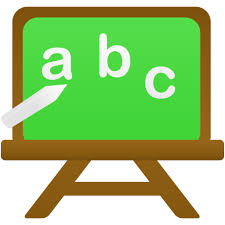Organization of English lessons based on advanced pedagogical techniques
Abstract
Interactive methodology is considered as a way of teaching English language and a source of information helps to master the language materials. As a result of using interactive methods, students enhance the skills of independent thinking, analysis, drawing conclusions, expressing their own opinions, supporting healthy communication and debate. This article will elucidate the peculiarities of the introduction of modern pedagogic technologies in English lessons.
References
Muminov.O.M. Translation. Tashkent, VEKTOR-PRESS, 2008.
Kadyrova F.R., Kadyrova R.M. “Theory and methods of children's speech development”. T. 2006. J., Pedagogical Education, 2002, N2.
Kadyrova R.M. “Psychological factors of development of dialogic speech in preschool children”. Butter, 2001.
R. Dale Generating Recipes: “An Overview of Epicure”. In R Dale, C Mellish and M Zock (eds), Current Research in Natural Language Generation. Academic Press, 2001.
B.Grosz and C.Sidner “Attention, Intentions, and the Discourse Structure”. Computational Linguistics, 2007.
E. Hovy “Parsimonious and Profligate Approaches to the Discourse Structure Relations”. In Proceedings of the Fifth International Natural Language Generation Works, 2006.
G Nunberg “The Linguistics of Punctuation”. No. 18, University of Chicago Press, 2000.
Richards, Jack C., Rodgers, Theodore S. “Approaches and Methods in Language Teaching”. Cambridge, New York: Cambridge University Press.TPR, 2001.
Cook, Vivian. “Second Language Learning and Language Teaching”. London: Hodder Education. Larsen-Freeman, Diane, 2008.
Fries CH. “Teaching and Learning English as a Foreign Language”. Ann Arbor, 2011.

In submitting the manuscript to the International Journal on Integrated Education (IJIE), the authors certify that:
- They are authorized by their co-authors to enter into these arrangements.
- The work described has not been formally published before, except in the form of an abstract or as part of a published lecture, review, thesis, or overlay journal.
- That it is not under consideration for publication elsewhere,
- The publication has been approved by the author(s) and by responsible authorities – tacitly or explicitly – of the institutes where the work has been carried out.
- They secure the right to reproduce any material that has already been published or copyrighted elsewhere.
- They agree to the following license and copyright agreement.
License and Copyright Agreement
Authors who publish with International Journal on Integrated Education (IJIE) agree to the following terms:
Authors retain copyright and grant the International Journal on Integrated Education (IJIE) right of first publication with the work simultaneously licensed under Creative Commons Attribution License (CC BY 4.0) that allows others to share the work with an acknowledgment of the work's authorship and initial publication in this journal.





1.png)
